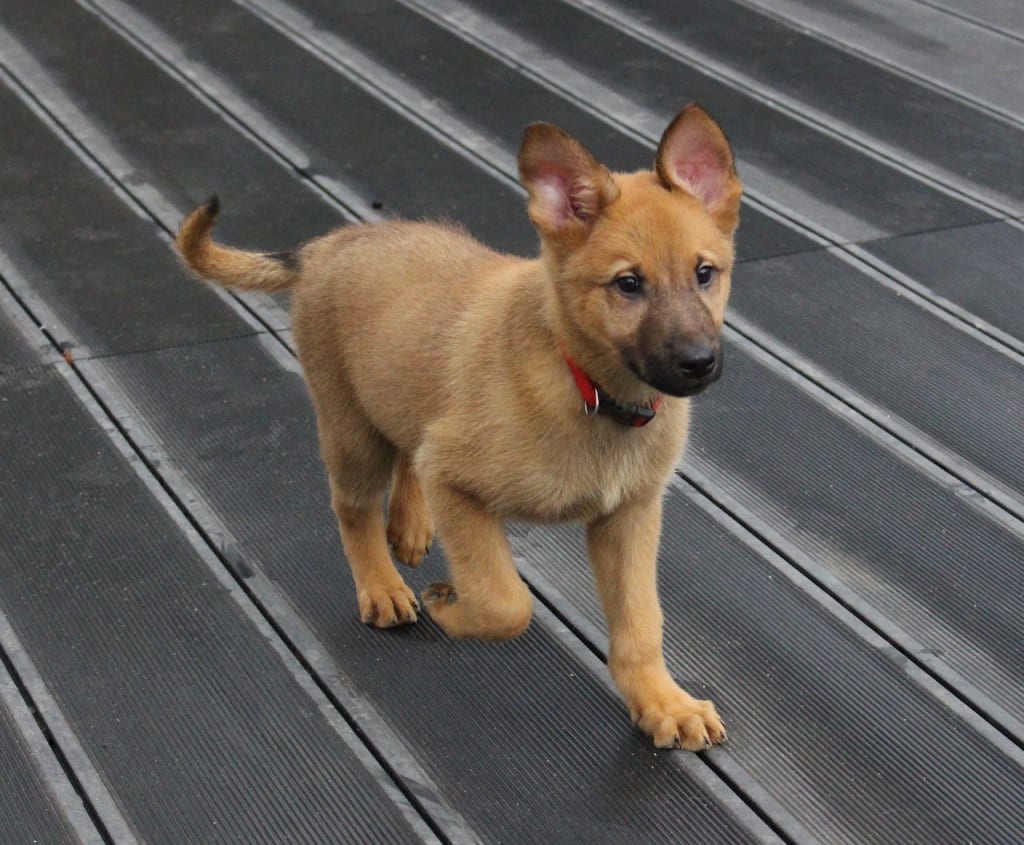Unleashing Potential: Mastering the Art of Training a German Shepherd Puppy
Unleashing Loyalty, Intelligence, and Adventure: Your Comprehensive Guide to Training a Remarkable German Shepherd Puppy

Introduction:
The arrival of a German Shepherd puppy in your home is an exciting event, particularly due to their reputation for intelligence, loyalty, and versatility. However, successfully training a German Shepherd puppy requires patience, consistency, and a systematic approach. This article aims to provide a comprehensive guide on how to effectively train a German Shepherd puppy.
1. Commence with Socialization:
Socialization is a critical aspect of training a German Shepherd puppy. Early exposure to diverse people, animals, and environments helps foster confidence and adaptability. Introduce your puppy to different stimuli in a controlled and positive manner. Consider enrolling them in puppy socialization classes or arranging playdates with vaccinated and friendly dogs. Reinforce calm and friendly behavior with rewards during socialization sessions.
2. Establish a Consistent Routine:
Developing a predictable routine is crucial for training a German Shepherd puppy. Dogs thrive on structure and routine, so establish a schedule for feeding, exercise, playtime, and bathroom breaks. Consistency will help your puppy understand expectations and minimize anxiety. Take your puppy outside regularly to eliminate, particularly after meals, playtime, or naps. Reward them for using the appropriate spot to reinforce positive habits.
3. Focus on Basic Obedience Training:
Teaching basic obedience commands to your German Shepherd puppy is essential for their overall training. Start with simple commands like "sit," "stay," "come," and "down." Employ positive reinforcement techniques such as treats, praise, and play to reward desired behavior. Break commands into smaller steps and gradually increase the difficulty. Maintain patience, consistency, and end each training session on a positive note.
4. Train Leash Etiquette:
Leash training is crucial for ensuring the safety of your German Shepherd puppy during walks and outings. Begin by introducing them to a collar or harness and allowing them to get accustomed to wearing it. Attach a lightweight leash and let them explore while keeping the leash loose. Reward them for walking beside you without pulling and gradually increase the duration and distance of walks. Use positive reinforcement and redirect their attention if they start pulling.
5. Implement Crate Training:
Crate training provides your German Shepherd puppy with a secure and comfortable space of their own. Introduce the crate gradually, making it a positive and rewarding experience. Start by placing treats or toys inside the crate, gradually encouraging your puppy to enter. Avoid forcing them into the crate. Use verbal cues such as "kennel" or "crate" and reward them for going inside. Gradually increase the duration of time spent in the crate, ensuring positive associations with it.
6. Discourage Undesirable Behaviors:
German Shepherd puppies, like any other breed, may exhibit unwanted behaviors such as chewing, jumping, or excessive barking. It is important to address these behaviors early on. Redirect their attention to appropriate toys or activities when they start chewing on furniture or personal belongings. Discourage jumping and reward calm greetings instead. Utilize positive reinforcement to encourage quiet behavior and gradually desensitize them to potential triggers.
7. Advance to Advanced Training:
Once your German Shepherd puppy has mastered basic obedience commands, you can move on to more advanced training. This can include agility training, tracking exercises, scent work, or specialized tasks based on your dog's interests and capabilities. Advanced training channels their intelligence and energy into constructive outlets, promoting mental stimulation and strengthening the bond between you and your puppy.
Conclusion:
Training a German Shepherd puppy requires time, patience, and consistency, but the rewards are immeasurable. By focusing on socialization, establishing a routine, and teaching basic obedience commands, you will lay a solid foundation for your puppy's lifelong training and development.





Comments
There are no comments for this story
Be the first to respond and start the conversation.